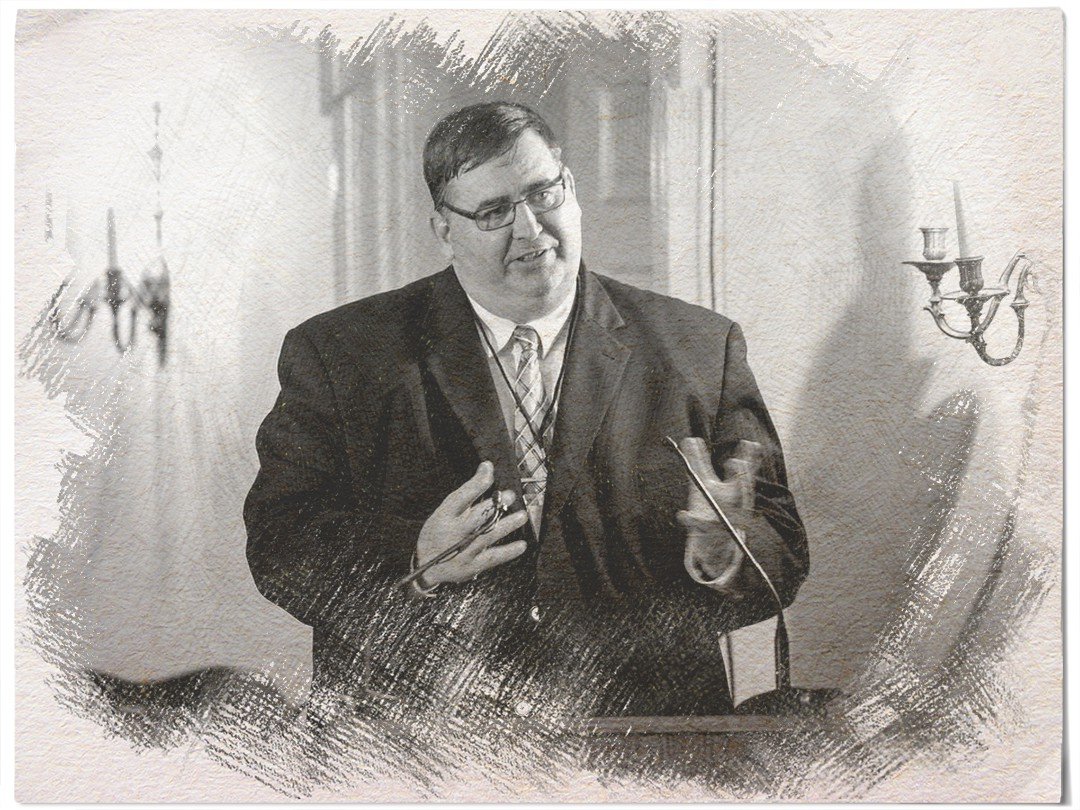ALL POSTS PRIOR TO 2021 HAVE NOT BEEN REVIEWED NOR APPROVED BY ANY FIRM OR INSTITUTION, AND REFLECT ONLY THE PERSONAL VIEWS OF THE AUTHOR.
If President Trump truly desires to supercharge the American economy, protect American business, create more small businesses, and create more jobs, he will support the U.S. Department of Labor's "Conflicts of Interest" (Fiduciary) Rule.
Let's face it. There is some over-regulation by government in our economy. However, some regulations are well-deserved, and can aid business and the economy. As related in the Federalist Papers #51, James Madison famously wrote: "[W]hat is government itself, but the greatest of all reflections on human nature? If men were angels, no government would be necessary."
Wall Street and the insurance companies have shown that they are no angels. They continue to tout their role, in commercials and other advertisements, as trusted "financial advisors" and "wealth managers." Yet, in reality, much of Wall Street just uses these masks to deceive and to sell highly expensive, often inappropriate investments to individuals who are working hard to save and invest for their retirement and other personal financial needs.
Wall Street is currently not required to act in the best interests of their clients. Hundreds of millions of Americans see their retirement nest eggs impaired by excessive intermediation - high fees, costs. And, as the trust of individual Americans is destroyed, they withdraw from participation in America's capital markets, altogether.
Yet, there is a solution.
The 237 words that form the U.S. Department of Labor's (DOL's) "impartial conduct standards" is at the heart of the DOL's "Conflict of Interest" (Fiduciary) Rule. Like Madison, the DOL recognizes that some government is necessary. And it imposes upon financial advisers to retirement accounts a simple, elegant solution - adhere to the fiduciary principle, and act in the best interests of your clients. (The remaining parts of the rule just serve to accommodate some of Wall Street's business practices, at Wall Street's request; hence the length of the rule releases.)
The harm imposed by Wall Street's current "sell expensive investment products to everyone" is detrimental to the American economy, and detrimental to American business.
- As the returns of the capital markets are diverted away from individual Americans - the owners of capital - to Wall Street, the accumulation of capital falls. This results in less accumulated capital for investment purposes - an effect that compounds over time with severe negative consequences for the long-term health of the U.S. economy. The cost of capital to corporations increases. Innovation, without capital, equates to missed opportunities for economic growth.
- (Indeed, Wall Street hurts itself, in the long run. If Wall Street's greed - in the form of high fees and costs from expensive products pushed upon our fellow Americans - was constrained, much great capital would exist in later years to manage. In essence, Wall Street extracts high fees today, preventing greater accumulations of savings and investment accounts. If the fiduciary standard were imposed and Wall Street's fees had to be simply "reasonable," greater accumulations would occur in investment accounts. Within years Wall Street would have much more to manage, albeit at at lower fees. Yet, Wall Street would be making just as much money. And America would be far better off.)
- American business owners prudently provide retirement plans for their employees. These plan sponsors receive advice from "retirement consultants" (Wall Street firms, insurance companies) on what funds to choose. Later, when plan sponsors are sued for including expensive mutual funds in their plans, the "retirement consultants" are often relieved of liability (hiding behind the low standard of "suitability"), while the business owner remains on the hook.
- Many studies have demonstrated that Wall Street's excesses impair U.S. economic growth and the formation of new businesses and jobs. As just one example: "[F]inancialization depresses entrepreneurship. Paul Kedrosky and Dane Stangler of the Kauffman Foundation find that as financialization increases, startups per capita decrease, in part because the growth in the financial sector has distorted the allocation of talent. They estimate that if the sector were to shrink as a share of GDP back to the levels of the 1980s, new business formation would increase by two to three percentage points. We have substantial circumstantial evidence to show that these trends have had negative consequences at the macro level: 'the influence of finance sector size on economic growth turns negative when financial services become too large a share of an economy and that high levels of financial activity crowd out investment and R&D in the non-finance sector.'" (Emphasis added.) From a Brookings Institute report by William A. Galston and Elaine C. Kamarck. (The Brookings Institute is a conservative think tank.)
President-elect Trump ... are you just another politician, who will take Wall Street's money and betray the faith of the individual American voters who elected you? Or are you, truly, a man who wants to make America great again - by encouraging greater capital formation, by assisting American business owners who desire to provide retirement security for their employees, and by encouraging the formation of new American businesses?
President-elect Trump - support the DOL's fiduciary rule. At its core, it is an elegant, 237-word solution to a longstanding problem. It will put America's economic growth back on the right path, both now and for the long term.
Supporting the DOL's fiduciary rule will help define your legacy as the champion of American business, and as the restorer of U.S. economic growth.
Ron A. Rhoades, JD, CFP is an attorney, financial planner, investment adviser, professor of finance, and author. (This post represents his views only, and are not necessarily those of any institution, organization, firm or group with whom he may be associated.) Ron may be reached at: ron.rhoades@wku.edu.

No comments:
Post a Comment
Please respect our readers by not posting commercial advertisements nor critical reviews of any particular firm or individual. Thank you.